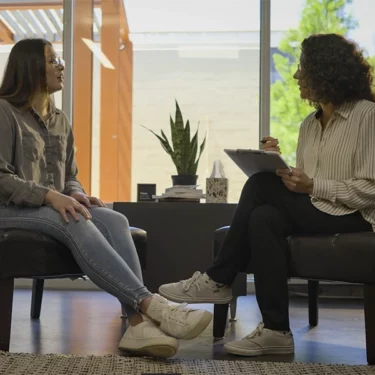The 67-year-old who walked into Integrity House, an outpatient mental health and substance use treatment center in New Jersey, said he needed help overcoming a 40-year history of drinking.
His story included more than a substance use challenge. The client also had mental health challenges and medical comorbidities that resulted in a series of emergency department visits and inpatient hospitalizations.
So, the staff at Integrity House got to work.
The same cold day in March that the client walked into Integrity House, he met with a clinician and received an initial evaluation and risk assessment. He met with a care manager to address adverse social determinants of health and coordination of care for medical comorbidities.
Their peer recovery specialist transported the client home and engaged him in rapport building. He met with the prescriber the following day, and she initiated psychotropic medications. The client also met with Integrity House’s primary care provider, who performed a history and physical and provided referrals to specialty doctors.
A peer recovery specialist attended initial Alcoholics Anonymous meetings with the client. The case manager and peer recovery specialist assisted him in scheduling and attending medical appointments and coordinated care among all providers. They assisted him in obtaining bus passes, as well as providing help managing medical correspondence.
Integrity House has accommodated clients with substance use and mental health challenges since opening its doors 53 years ago in downtown Newark, New Jersey.
But it was only in the past two years that Integrity House became a licensed mental health clinic. That happened when it completed its transition to a Certified Community Behavioral Health Clinic (CCBHC).
Now, Integrity House can provide more services than ever before and no longer must refer patients to licensed mental health clinics.
“It’s so important that we provide both mental health and substance use treatment because so often those conditions occur together,” Integrity House President and CEO Robert Budsock said.
An estimated 8.9 million adults in the U.S. have co-occurring mental health and substance use disorders, according to the Substance Abuse and Mental Health Services Administration. CCBHCs are closing the treatment gap that leaves so many without proper care.
“CCBHCs help eliminate barriers to access and ensure that clients receive whole person care – not just some of the care they need,” Budsock said.
That’s because CCBHCs provide a full array of services and supports, integrated with primary care and coordinated with other social service providers.
In addition to dramatically increasing access to mental health and substance use disorder treatment, CCBHCs have reduced wait times, expanded states’ capacity to address the overdose crisis and established innovative partnerships with law enforcement, schools and hospitals to improve care, reduce recidivism and prevent hospital readmissions.
Integrated treatment – the comprehensive care CCBHCs offer routinely – should be the norm, and CCBHCs provide a model to make integrated care a reality for everyone.
In Missouri, hospitalizations dropped 20% after three years, and emergency department visits dropped 36%. Access to mental health services increased 23% in three years, with veteran services increasing 19%.
In Texas, the CCBHC model is projected to save $10 billion by 2030.
Thanks to federal and state investment, more than 430 communities in 42 states now have a CCBHC – including Newark, New Jersey. The transformation Integrity House made to become a CCBHC has paid off, Budsock said, for the organization, its clients and the community.
“I hope more providers move in this direction because CCBHCs offer comprehensive care,” Budsock said.
Much of that depends on continued federal support.
In 2018, Congress began appropriating annual funds for CCBHC expansion grants, designed to further the reach of the clinics. SAMHSA has received over $1 billion from Congress to fund CCBHC Expansion Grants.
Recently, SAMHSA announced it is awarding the National Council for Mental Wellbeing a five-year grant to operate a national center for technical assistance for CCBHC grantees, a profound show of support and an endorsement of CCBHCs.
We know CCBHCs are making a difference – expanding access, improving collaborations with criminal justice agencies and expanding access to substance use disorder treatment.
That’s why we are urging Congress to include the bipartisan Excellence in Mental Health and Addiction Treatment Act in the reconciliation package. This legislation would allow any state to participate in the CCBHC program and establish a payment rate that covers the real cost of expanding access.
We need more organizations like Integrity House. We need more CCBHCs because they provide vital treatment to people in their communities – to all people who walk through their doors.


